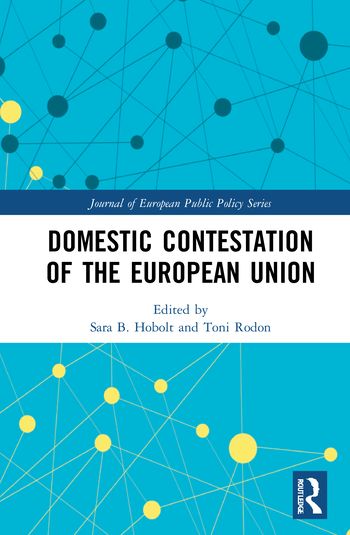
This book examines how Europe-wide issues – such as immigration, cross-national redistribution and further European integration – have reshaped electoral democracy and party competition across Europe.
After decades of scholars and commentators bemoaning the limited politicization of the EU nationally, European issues have come to dominate domestic electoral politics. From the Eurozone crisis to the struggle of dealing with growing numbers of migrants and refugees entering Europe, EU-wide issues now occupy a salient part of the domestic political debate. This book examines what drives public opinion towards some of the key Europe-wide issues of the day and how these EU issues shapes electoral behaviour and party competition. It brings together leading scholars from different fields to explore what shapes preferences towards Europe-wide policy issues, how they influence electoral behaviour and party fortunes and what the implications are for the quality of European democracy. Overall, this book deepens our understanding of the state of European democracy domestically in an era in which national and Europe-wide problems and policy solutions are inextricably linked.